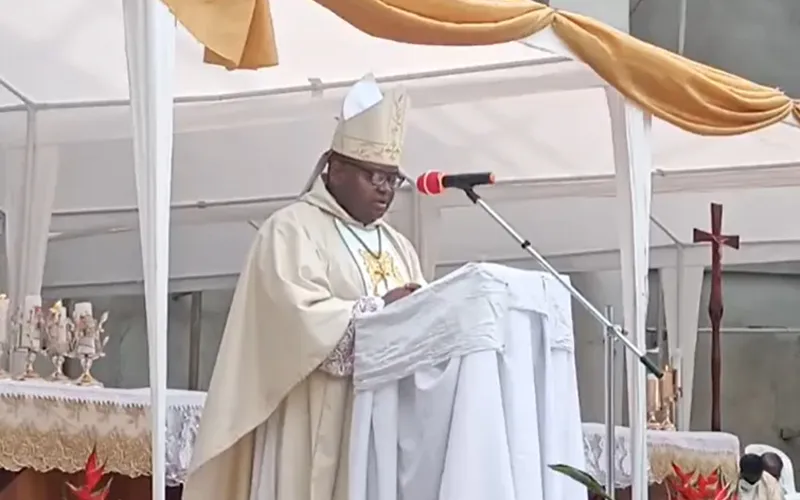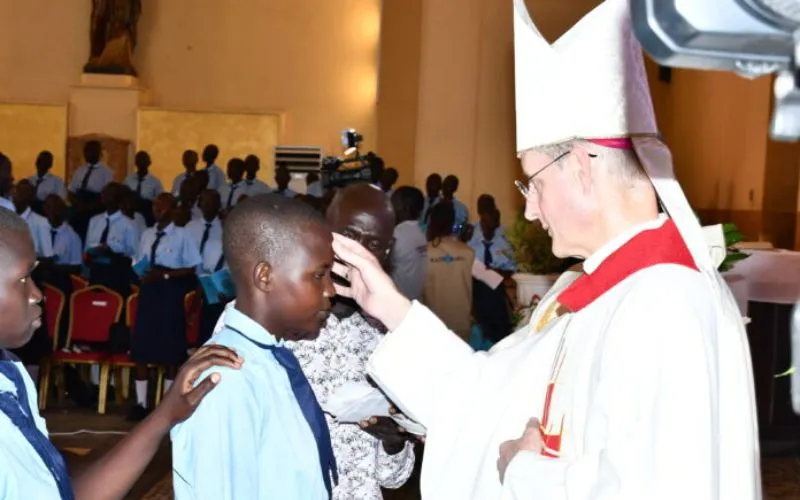In his February 25 homily, Bishop Bibi described the decision he took as Apostolic Administrator and later as Bishop of Buea as “mortal sins” haunting him till date.
“As apostolic administrator of Buea Diocese, I did what some consider two mortal sins. The first mortal sin that I committed was the changes I made by replacing the former administration of the Catholic university Institute of Buea. The second mortal sin I committed was the suspension of the lay associations in the diocese of Buea in view of carrying out thorough investigations about them,” Bishop Bibi said.
He continued, “These considered mortal sins have haunted me and are still haunting me today.”
“I would like to use this opportunity to remind all of us that we must stand for the truth and work for the truth at all times, in spite of the challenges we must go through,” the Cameroonian Bishop said, and continued, “If I were asked to take these decisions again, I will take them and even harder.”
The Local Ordinary of Buea Diocese reminded the people of God under his pastoral care that they have “only one Bishop, not two and that the one Bishop is responsible for everything as far as your life is concerned.”
(Story continues below)
He urged members of the Clergy, women and men Religious, and the Laity of Buea Diocese to stand by him and to “pray for me to do my work.”
“I am not going to give room to any mediocrity in this Diocese and all of those who want to feed fat on the resources of the Church and run the affairs of the Church as their personal properties must be brought to order,” Bishop Bibi said at the occasion of his first anniversary as Bishop of Buea Diocese on February 25.
He added, “I will not give chances to any disorder in this Diocese and there shall be no untouchables when it comes to the aspect of proper administration of the Diocese in all its ramification.”
The Catholic Church leader who started off his Episcopal Ministry in March 2017 as Auxiliary Bishop of Bamenda Archdiocese in Cameroon underscored the need for commitment to service saying, “Here there is no sitting on the fence when it comes to commitment to serve the people from the Bishop to the laity, all of us must be engaged.”
“We must all have the good of the Church and work according to the laid down principles for the good of the people of God,” he emphasized, and added, “The Bishop is bound to listen to the people, but ultimately the Bishop takes the decision for the good of the Diocese and takes responsibility in the eyes of God.”
He continued, “We must search ourselves and rid ourselves of any form of hatred, gossip, condemnation, judgmental attitudes, envy, blackmailing, and all vices, which do not build up the family of God in our Diocese.”
“Ours is to love one another, to serve one another and we must do so truly and fully, because we are indeed the body of Christ,” the 50-year-old Cameroonian Bishop said, and implored, “Let us pray that our Diocesan family may continue to grow spiritually materially and otherwise, and that we may indeed become one flock under one shepherd.”
Jude Atemanke is a Cameroonian journalist with a passion for Catholic Church communication. He holds a Bachelor’s Degree in Journalism and Mass Communication from the University of Buea in Cameroon. Currently, Jude serves as a journalist for ACI Africa.








